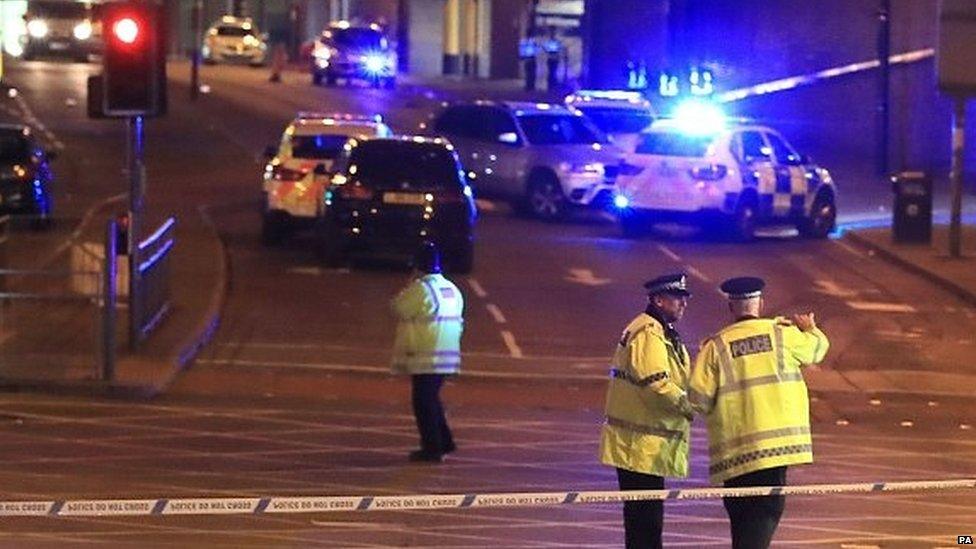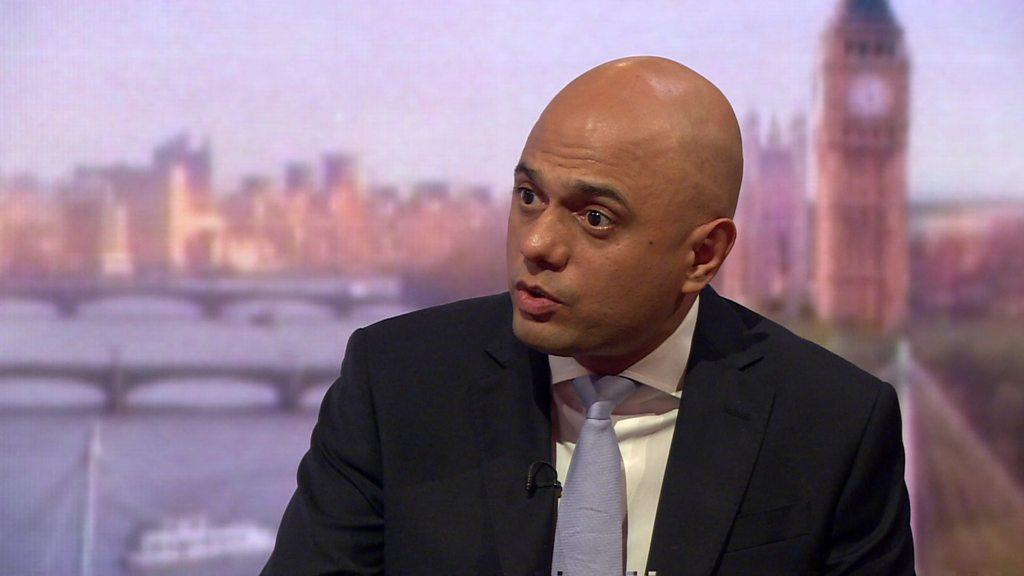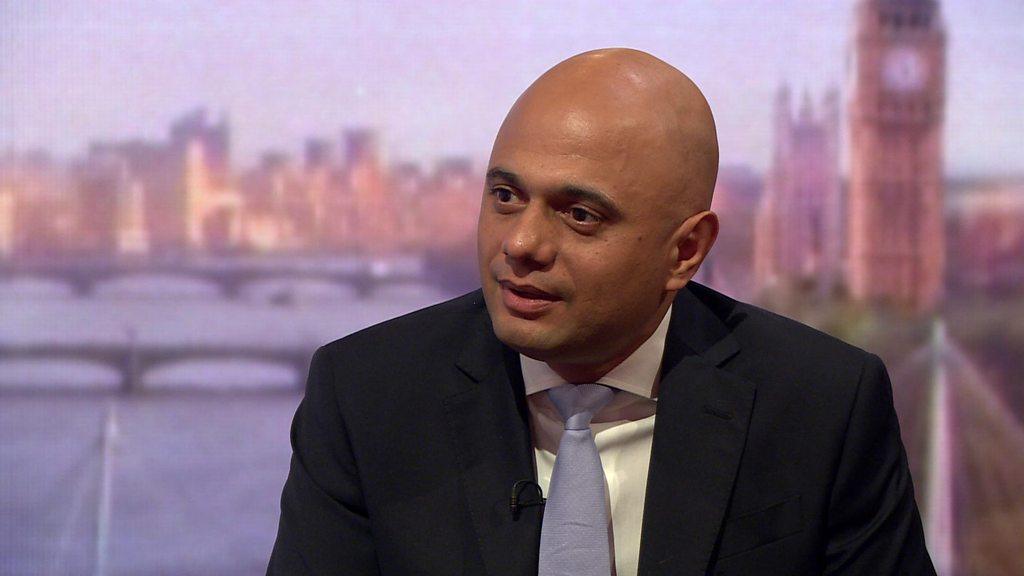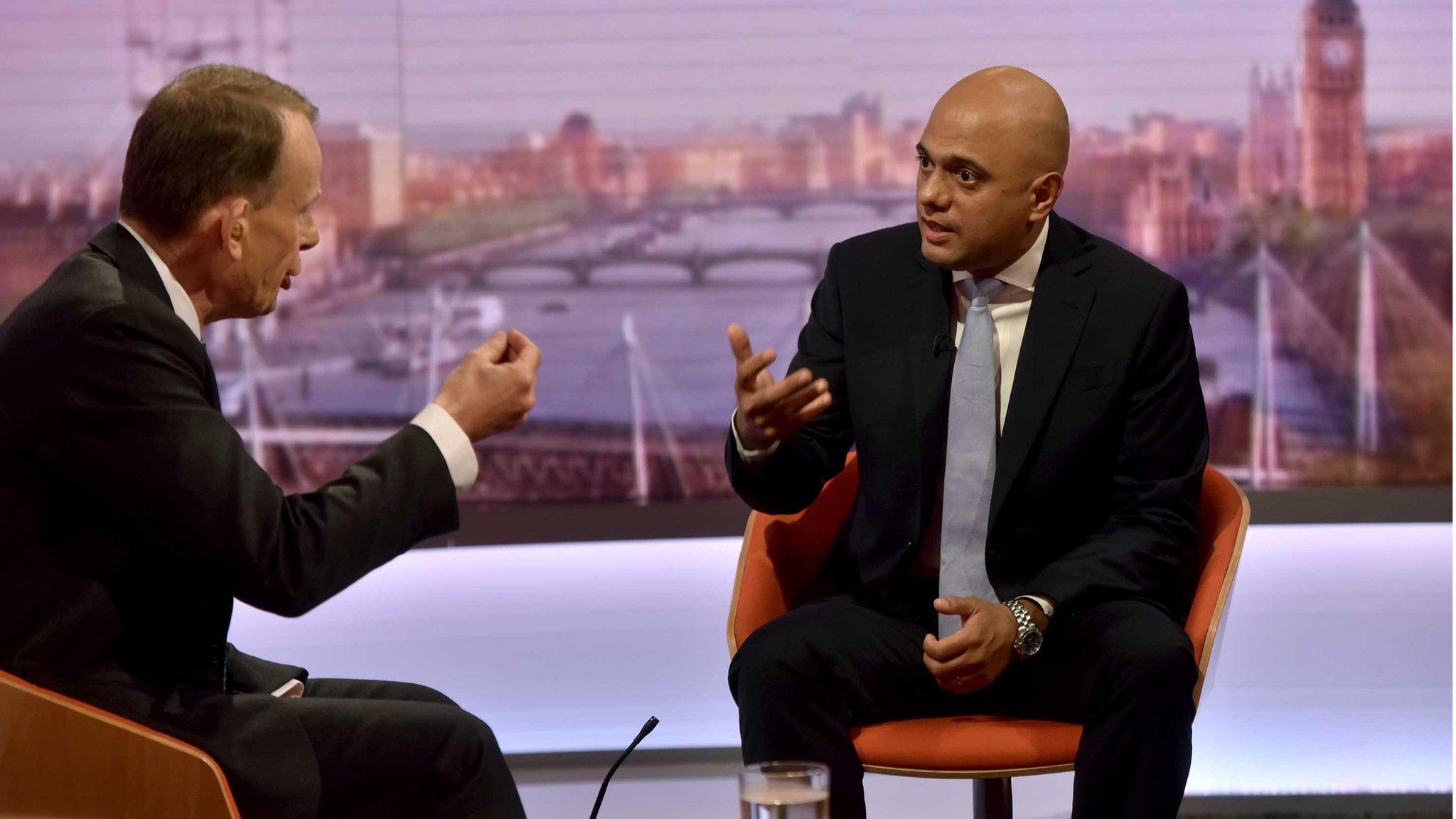Terror strategy: MI5 to share information on UK suspects
- Published
Javid: We can do better on intelligence sharing
Home Secretary Sajid Javid has revealed plans for MI5 to declassify and share information on UK citizens suspected of having terrorist sympathies.
"Key" biographical data will be given to neighbourhood police, councils and the charity commission in London, Midlands and Manchester trial schemes.
Last year's wave of terror attacks showed the need for wider and more local exchange of information, he said.
There must be no "safe spaces" for terror suspects anywhere, he said.
In his first speech on security since replacing Amber Rudd, Mr Javid said there had been a "step change" in the threat to the UK, with 25 Islamist-linked plots foiled in the last five years and four extreme right plots stopped since March 2017.
To counter this, he called for increased - and faster - sharing of information between security services and the police as well as local authorities and other public agencies such as the Probation Service, the Charity Commission and the Communities department.
The security services currently hold information on around 20,000 people labelled "closed subjects of concern" who have previously been investigated and it is believed could pose a threat in the future.
Intelligence on up to a hundred of these could initially be shared.
"While it might seem self-evident today, it was not really happening before," he said.
Cllr Simon Blackburn told Today that data sharing will help monitor potential extremists
Examples of co-operation, he said, could lead to "faster alerts for suspicious purchases, improving security at crowded places across the UK, and reducing the vulnerability of our critical infrastructure".
Ministers want firms to raise the alarm as quickly as possible if they have evidence of unusual transactions - such as someone stockpiling large amounts of chemicals or acting suspiciously when hiring a vehicle.
The move reflects concern over a sharp reduction in the timeframe between the conception and execution of terror plots.
Mr Javid said there must be "no safe spaces in the UK for terrorists to spread their vile views, or for them to plan and carry out attacks and no safe spaces online for terrorist propaganda and technical expertise to be shared, and for people to be radicalised in a matter of weeks".
Other proposals include increasing maximum sentences for some offences and enhancing the use of data to track terrorism suspects.
Mr Javid, who on Sunday confirmed the security services were to get 2,000 extra officers, also argued that the Islamic State group and right-wing extremists were "more similar than they might like to think".

Ben Wallace said information sharing could help community police "focus" more on the terror threat
"They both exploit grievances, distort the truth, and undermine the values that hold us together," he said.
It emerged over the weekend that security services expect the threat from Islamist terror to remain at its current heightened level of "severe" for at least another two years, while they assess that the risk from extreme right-wing terrorism as increasing.
Security minister Ben Wallace told the BBC that classified information would be divulged where "proportionate and necessary" - as he said had once happened in Northern Ireland.
The move was not aimed at "hardened plotters", he told BBC Radio 4's Today, but the "large pool" of people who might assist them in different ways, for instance by lending money.
The BBC's security correspondent Frank Gardner said the number of people being talked about was "in the hundreds not the thousands".
While officials were adamant that early intervention could protect those potentially vulnerable to radicalisation, he said there was a risk that entirely innocent people could find themselves "effectively blacklisted".
Shadow home secretary Diane Abbott said there were 21,000 fewer police officers than when the Conservatives came to power and also questioned the involvement of councils, which she said had not been mentioned in former watchdog David Anderson's report , externalinto last year's attacks in London and Manchester.
Councils said they already played a role in reporting early signs of radicalisation but their staff could not be expected to do the jobs of intelligence experts or police officers.
"Information sharing could be a positive step," said Simon Blackburn, from the Local Government Association.
"But local authorities are not MI5 and it's essential that the police and security services lead on responding to and acting on any threats."
Ministers have also responded to reports, external that dozens of terrorists are set to be released from prison after completing their sentences within the next few months, saying they are a "concern".
- Published3 June 2018

- Published3 June 2018

- Published3 June 2018
